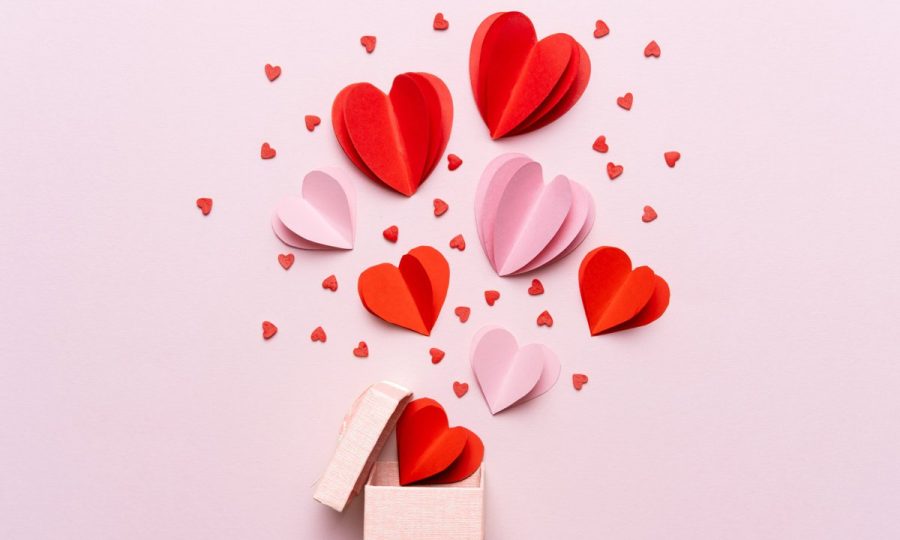A Love-Hate Relationship
Valentines Day is an exciting day for some, and just another day for others.
Love it or hate it, it’s that time of the year again. There’s no way to avoid the aisles of roses, chocolates and stuffed bears as people shop for a perfect gift for their loved ones. However, not everyone will be in line at their grocery stores as Valentine’s Day nears.
While Valentine’s Day is a global holiday generally associated with romanticism and affection, other people feel differently. According to a survey by YouGovAmerica, an international research data and analytics group, 57% of Amercians have a positive view on Valentine’s Day, while the other 43% feel negatively or neutral about the holiday. Multiple factors play into this fine line, but many people feel like Valentine’s Day doesn’t go beyond the romance and relationships stereotyped in 2022. Amaka Gbulie, freshman, feels like Valentine’s Day lacks depth and excludes people who are single during the romantic holiday.
“I don’t really value Valentine’s Day. The exclusion doesn’t matter to me anymore, but to other people it can really hurt them. It can cause loneliness for some people because of the societal pressure that some people get from it, and the anxiety. If somebody were to not get one, they would say, ‘Why don’t I deserve a valentine, do people not like me?’ It might mess with your mental health,” said Gbulie.
Gbulie is not alone in this loneliness and pressure. A survey by Forbes reported an astounding 61% of participants feeling this way on the romantic holiday. With social media taking over schools, some students feel the pictures they see of couples give them a feeling of peer pressure to find someone to celebrate with, and pictures can also cause negative feelings. It’s hard enough to balance school with extracurriculars, so the last thing students need is a popularity check.
“Being in a couple will increase your popularity. How well you’re celebrating it depends on who you’re celebrating it with. It’s a holiday to make people feel loved, but society values it to have somebody to love you. If you don’t get a valentine, you feel horribly. If you do get one, you’re going to feel on top of the world. But if Valentine’s Day was what it’s supposed to be, you wouldn’t really care,” said Gbulie.
This comparison between people worries Charlie Martin, Biology teacher, who also feels like the capitalistic design may be unfair to students who don’t have easy access to money.
“I think it makes them feel like they need to be doing something, like they need to be in a relationship. They see their friends around and it almost seems like a competition to them. It does concern me that it’s seen as a competition and you have to out-do the other couples. For some people, they don’t have the money to do that sort of thing and I think it makes them feel bad,” said Martin.
Americans spend an average of $20 billion a year on gifts, with about 20% of this profit coming from the jewelry industry. One-third of American adults spend over $100 on gifts for loved ones, friends and even pets. Ashley Hicks, AP Human Geography and Economics teacher, agrees that although the holiday is highly capitalistic and commercial, the real purpose of Valentine’s Day is to recognize people who sometimes go unnoticed.
“It’s about appreciating people in your life. It just usually happens to be your significant other. But I appreciate my friends, so someone who means a lot to you, you treat them special. I think it’s nice because I’m really bad about not doing daily appreciation. We take people for granted because we’ve been together so long, so it’s nice to set aside a time,” said Hicks.
Many people look forward to their yearly traditions for certain holidays. Hicks says she has dated her husband since high school, and every year he has bought her tulips, her favorite flower. This is the sort of thing that people love about these once-a-year celebrations. They not only create memories, but they can ensure old ones.


